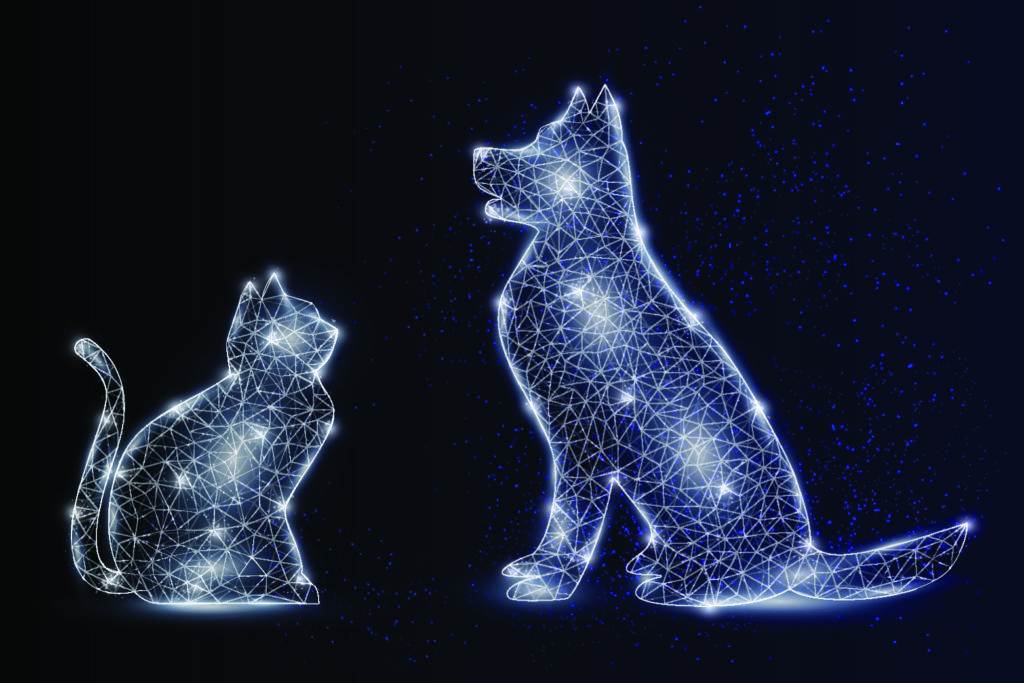Us and Them—Our Connection to Pets
For many years, hunters, animal trainers, horse riders, naturalists, and pet owners have reported kinds of perceptiveness in animals that suggest the existence of unexplained powers. Telepathy—picking up needs or intentions at a distance from a closely bonded member of the social group—is a major type of unexplained intuitive ability that suggests the existence of powers, senses, or fields that are not yet accepted within institutional science.
Many dogs, cats, parrots, and other companion animals seem to be able to pick up their owners’ thoughts and intentions, even at a distance. People’s intentions, calls, and commands affect their animals, and the animals’ needs and emotions affect people. In random household surveys many pet owners said that their animals were sometimes telepathic with them: Forty eight percent of dog owners and 33 percent of cat owners said that their pets responded to their thoughts or silent commands. Also, many horse trainers and riders believed that their horses could pick up their intentions telepathically.
The perceptiveness of pets usually depends on a combination of influences including body language, familiar words, tones of voice, deviations from routine, and telepathy. Telepathic influences show up most clearly where animals pick up people’s intentions and feelings when they are miles away. In the household of a professor of ethnomusicology at the University of California at Berkeley, his wife knew when he was on the other end of the line because their silver tabby cat, Whiskins, rushed to the telephone and pawed at the receiver. “Many times he succeeds in taking it off the hook and makes appreciative meows that are clearly audible to my husband at the other end,” she said. “If someone else telephones, Whiskins takes no notice.” he cat responded even when her husband called home from field trips in Africa or South America at unpredictable times.
The most convincing evidence for telepathy between people and animals comes from the study of dogs that know when their owners are coming home. My colleague Pam Smart and I carried out many videotaped experiments in which the owners went at least five miles from home and returned at non-routine times that we selected at random, traveling in unfamiliar vehicles. The filmed records showed that dogs anticipated their owners’ arrivals long before they arrived home, in a way that could not be explained in terms of routine or normal sensory clues. This anticipatory behaviour is common. Many dog owners simply take it for granted, without reflecting on its wider implications. Some of the most dramatic examples of telepathic links occur when people have accidents or die when they are far away from their homes. My database contains 140 accounts of the reaction of dogs to the death of an absent person to whom they were attached. In most cases, the dogs howled for no apparent reason, but some whimpered or whined, or barked in an unusual way. In cases where no sounds were mentioned, they were said to be upset, miserable, shivering, terrified, or distressed.

In most cases the animals showed clear signs of distress at unexpected times when their people were far away, and when those looking after them had no reason to expect any problem.
A couple from St. Albans in England was on holiday in Ireland when the husband suddenly died: “Our seven-year-old standard poodle was staying with friends in St. Albans. At just after midnight, the poodle howled and rushed upstairs to my friend, who was in the bath. At just after midnight, my husband died.”
On my database there are more than sixty accounts of cats behaving unusually when their owners died when away from home. On one occasion, tomcat belonging to a family in Switzerland was very attached to their son, who went away to work as a ship’s cook. He came home irregularly, and the cat used to wait for him at the door before he arrived. One day, the cat sat at he door and meowed very sadly. “We could not get him away from the door,” wrote the boy’s father. “Finally we let him into our son’s room, where he sniffed at everything but still continued his wailing. Two days after the cat’s strange behaviour we were informed that our son had died at exactly that time on his voyage, in Thailand.”
These telepathic connections between companion animals and people are usually related to the strength of the bond between them. The love and affection between them does not necessarily imply a spiritual dimension, just as our relationships with other people may not have an explicitly spiritual aspect. But in the same way as this greater spiritual reality can shine through human relationships, so it can in our relationship with animals.
Many animals have better developed psychic abilities than most humans. They are not in themselves spiritual, if we take the spiritual to involve a link to a higher mind or consciousness. But linking with animals is a spiritual practice to the extent that it helps to make us more aware that there is a conscious dimension to the world that we share with other species.
Dr. Rupert Sheldrake is a renowned biologist who after studying at Cambridge and Harvard lived in a Benedictine ashram and is a current fellow at the Noetic Institute in Petaluma, CA. He is author of more than 90 technical papers and 14 books, including Ways to Go Beyond and Why They Work by Monkfish Publishing, from which this essay was adapted.